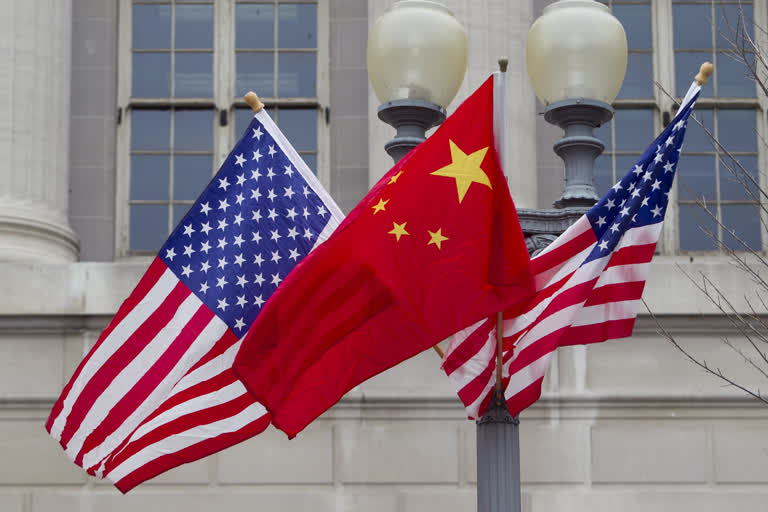Hyderabad: Like the Edward Lorenz’s Chaos theory, where the flipping of the wings of a butterfly, influences whether, thousands of miles away in future, the tremors of the trade war between the United States and China too, will have repercussions all over the world.
India is no exception from this phenomena, given the global economic integration via trade and finance channels. In this context, it is pertinent to understand, assess and get ready for the implications and design the policies to deal with them.
Implications for India:
In the short run the tussle between the two giants restricting each other, their market access would benefit India, as it could become a potential source of supplies to both China and America. This would give a boost to India’s exports in the short run.
However if the trade war persists for long, it would adversely impact India’s equity and bond markets and exchange rate as well. This is due to the fact that an increase in the American tariffs on Chinese goods entering U.S markets, would result in higher prices of imported goods.
Read more:US blacklists Huawei, places it on entity list
This would mean higher domestic inflation in the United States. This in turn, would force the Federal Reserve to raise the interest rates in order to tame the inflationary pressures.
As the interest rate rises in the United States, there would be two fallouts.
- First, the investors who used to borrow funds in the United States at cheaper rates of interest and invest them for higher returns in emerging markets like India, would not have an incentive to do so, in a high-interest rate environment in America. This will reduce capital inflows into equity and capital markets of emerging markets, including India.
- Second, the higher interest rates in the U.S would attract the capital flows, with American Dollar still being a safe haven. This would result in capital outflow from the emerging markets, towards the United States, in search of higher returns. Given the integration of global financial markets, Indian markets too would witness capital outflows, as it happened when trade war started in 2018.
With the capital inflows falling on one hand and the capital outflows increasing, on the other hand, India’s rupee will come under pressure to depreciate and this will make imports of India costlier and finally affects the balance of payments (BoP) of the country.
In addition to this, the volatility in global equity and capital markets will also drive the gold prices towards the north, which is not good news for India, whose gold consumption is huge. This will again widen the current account deficit.
Policy outlook:
Given the possibilities of a spiral of cascading effects, it is time, India’s policy makers remain cautious and craft policies to defend any exigency in the near future. They need to focus on two aspects.
- First the short term aspects, of gaining access to the Chinese and American markets and building up capabilities to emerge as a substitute supplier to both U.S and China. This requires improving the competitiveness of exports through policy intervention at the micro level.
- Second aspect is to deal with the effects of the trade war. It is a matter of fact that India could not completely insulate itself from the impact of the trade war.
However, it could reduce the pain by giving enough emphasis to global developments, while making the monetary policy in particular, in addition to its focus on the balancing act of domestic inflation and economic growth.
To put it simply: Injury is inevitable. Still, the pain could be reduced.



